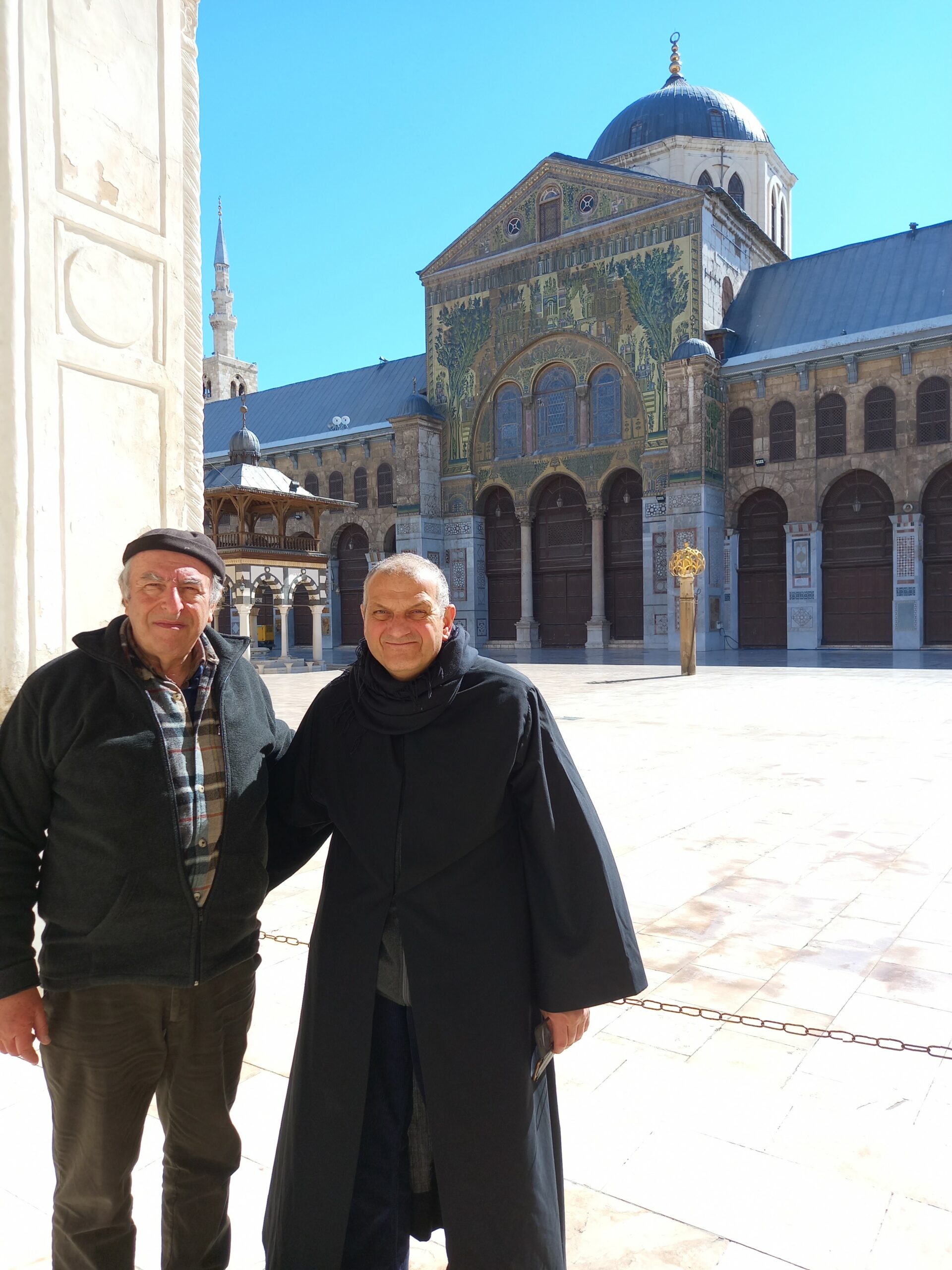
Syria: Hope does not die!
The Impact of Wars and Peace Work: Reflections from Syria
It is sad to realize that the attention on certain realities, on certain countries, on certain peoples, is reborn only when the spotlight shines on them with the blinding light given by the explosion of bombs. It is the devastating echo of their blast that comes to us or, rather, what we are more likely to hear, rather than the cry of thousands and thousands of people begging for help, going hungry, asking for peace and justice, while they are once again under the daily threat of death because of war.
So it is with Syria … so it is with Lebanon, ravaged by years of war and then forgotten by public opinion and the media who have catalyzed their attention on the war between Russia and Ukraine. Now, the tragic events of the clash between Palestinians and Israel bring attention back to the Middle East once again.
The spotlight is turned on, the bombs are falling, and on the couches of our living rooms everyone is talking in a freewheeling manner, expressing their epidermal dislike or sympathy for one or the other faction….
But what I have just written in summary does not depict the whole reality, which is much more complex: there are so many people who in silence work, really so many people, who cherish and recognize the fatherhood of God and brotherhood among men.
Also this year, like last year, I went to Syria to meet with a group of them. They are the monks of the Mar Musa community, founded by Father Paolo Dall’Oglio and Father Jacques Mourad in the early 1990s of last century, in the Syrian desert. Here, the miracle of faith and hope: their community, their monastery, once the Covid 19 outbreak is over, has once again become a place of meeting and welcome where about 300 people come every week to pray, talk and confront the monks. They are young teenagers, university students, adults of all ages, men and women, Catholics, Orthodox, Muslims and others seeking God. They come from all over Syria and beyond and pray together for peace.
I was struck by the Christian witness of Father Jacques and the other monks: of their experience of solitude in the desert that helps their personal relationship with God and also the fraternity with which they not only welcome everyone, but also help the neediest people economically as Jesus taught.
There, I learned more deeply to understand and welcome the humanity of others … of all others, because they are our brothers and also because every man lives bearing the wounds of a past that affects his present, often in a negative way. Hence the need for a merciful gaze on everyone, even the jihadist. This is the Christian, that is, totally human, gaze of Father Jacques who was for five months a prisoner of the Jihadists.
Now the monastic community is engaged in the reconstruction of the monastery of Qaryatayn, in the resumption of the agricultural project: thousands of vine, olive, apricot and pomegranate plants torn up by the jihadist fury, replanted again with patience in the monastery’s land, to give a prospect of work to the inhabitants of the desert town of the same name and a chance to return for the Christians who left during the war.
Meanwhile, in the monastery of Mar Musa, given the large influx of people and the precarious situation of the building dedicated to hospitality (in the desert at an altitude of 1,300 meters, the winter is extremely harsh), it became necessary to replace decrepit fixtures.
Important in this whole affair is the economic support also given by Spazio Spadoni to the monks in a five-year program of aid for the construction of agricultural works and reception places. All this means building works that bring peace and hope without being stopped by the winds of war that try to demolish everything, first and foremost the humanity of people.
Earlier this year, the Pope appointed Father Jacques as Archbishop of Homs and, on March 6, the Syrian Catholic Patriarch consecrated him in the city’s cathedral in the presence of the Holy See’s Apostolic Nuncio for Syria and Lebanon.
This is an important recognition of the charism of the Mar Musa community by the Universal Church. For Spazio Spadoni it is a reason for confirmation in the missionary work he is doing in Syria, fraternally helping this community.
Hope does not die and is the strongest of the theological virtues, as Charles Péguy writes in his work “The Porch of the Mystery of the Second Virtue.” Pope Francis recalls this poet, quoting him in his Message for the 52nd World Day of Peace on Jan. 1, 2019: “Peace is similar to the hope of which the poet Charles Péguy speaks: it is like a fragile flower that seeks to blossom amidst the stones of violence“.
Paolo Boncristiano
